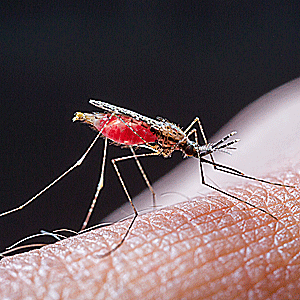
The US National Institutes of Health has awarded $25 million to the J. Craig Venter Institute to back an initiative to study infectious diseases like malaria and influenza at the genetic level to help find better treatments and preventive measures.
The institute, with offices in Maryland and California, will use the five-year grant from NIH to establish the Genome Centre for Infectious Diseases to study the genetic secrets of a wide range of bacteria, viruses and parasites.
The effort will include genetic sequencing of a number of pathogens and research on genetic mechanisms behind the emergence of antibiotic resistance, officials said.
"It's a pretty big programme," said Karen Nelson, president of the non-profit institute, in a telephone interview.
Malaria a high focus
Infectious diseases are among the leading causes of death worldwide. Venter, the former NIH researcher who founded the institute, said in a statement that the new work will be aimed at "enabling a more in-depth understanding of pathogen biology and potentially aiding in better treatments and preventative measures against infectious disease."
The parasite research will focus on malaria, the mosquito-borne disease that every year kills more than 620 000 people – mostly African children – and also toxoplasmosis, which US health officials call a leading cause of death attributed to foodborne illness in the United States.
Read: Nanobiotechnology to fight food-borne illnesses
"Malaria is a particularly high focus for the (NIH's) National Institute of Allergy and Infectious Diseases. The focus there is really on exploring approaches to come up with malaria vaccines, which are looking more and more like they're going to potentially be a reality for managing malaria," Venter Institute researcher William Nierman added.
Viruses to be studied include: influenza from human, avian and swine sources, respiratory syncytial virus (RSV), rotavirus, West Nile virus and Eastern equine encephalitis virus.
In the bacterial research, the programme aims to perform genetic sequencing on more than 1 700 strains of three disease-causing types: klebsiella, acinetobacter and enterobacter.
Read more:
Vaccine capable of eliminating malaria by 2030
Scientists develop a promising new malaria vaccine
Faster vaccination saves lives in flu pandemics




 Publications
Publications
 Partners
Partners











